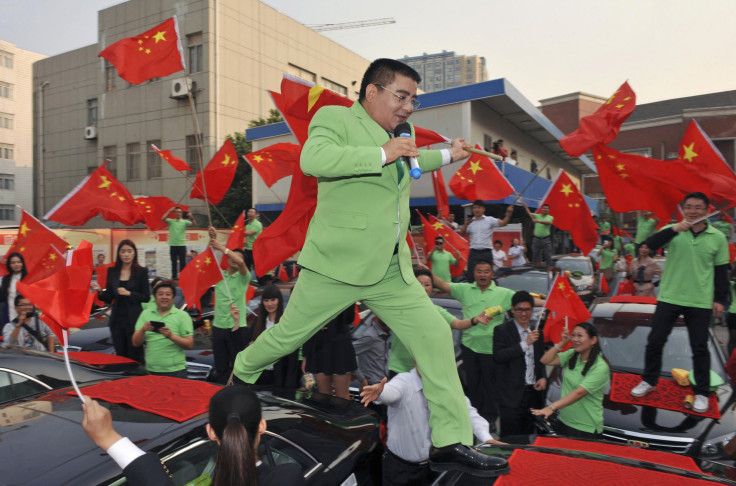China vs. New York: Do Cash Handouts To The Homeless Work? Lessons From A PR Stunt

Until Thursday, the eccentric Chinese multimillionaire and philanthropist Chen Guangbiao was best known in the United States for his quixotic (and unsuccessful) attempt to purchase the New York Times in 2013. Undeterred, Chen crossed the Pacific again this week with his latest publicity gambit: treating a group of 100 homeless people in New York City to lunch at Central Park’s elegant Loeb Boathouse restaurant. Along with the meal, Chen promised the homeless something else: $300, in cash, each.
The stunt didn’t go over well. The New York City Rescue Mission, the charity that arranged for the arrival of the homeless, refused to allow the cash handout, arguing that some of the recipients would just spend the money on drugs. This bait and switch caused a backlash from the very people Chen attempted to help. According to the South China Morning Post of Hong Kong, several jeered Chen, and some even called him a “fraud.”
On Friday, Chen dismissed the mishap as a cultural difference between East and West.
“I thought distributing cash was be a good idea,” he said. “If I gave cash to the poor in China, they would use it to buy agricultural products and services.”
Chen himself is no stranger to poverty: Born in rural Jiangsu province during the Cultural Revolution, a decade of chaos and misery that ended in 1976, Chen lost two siblings to starvation. His subsequent life story reads as a Chinese version of a Horatio Alger story: Poor but plucky, Chen ultimately enriched himself in business during China’s long boom period. And now, unlike many of his countrymen -- China’s wealthy have not embraced philanthropy to the same degree that the rich in the developed world have -- he is eager to give back.
So it’s worth considering Chen’s observation that China’s poor would use a cash giveaway wisely, while the American homeless would not. Is it true?
For an empirical example, turn to San Francisco. In 2002, the famously tolerant city, which is known for its huge homeless population, passed a ballot measure establishing Care Not Cash, which reduced cash giveaways to the city’s homeless from $422 to $59 in exchange for shelter. Since its inception, the program has attracted considerable controversy but has seemed to work: In 2011, the San Francisco Chronicle reported that Care Not Cash reduced the city’s welfare rolls by 85 percent and placed 3,400 people in housing.
Likewise, a British NGO conducted an experiment in 2010 (discussed by The Atlantic’s Derek Thompson the following year) in which it asked 13 homeless people what they wanted, and bought it for them directly instead of giving them the money. One year later, 11 of the 13 were off the street.
Does this mean that all cash handouts are destined to fail? Not necessarily. On Thursday, Dylan Matthews at Vox wrote about a government program in Mexico in which 200 poor families were given cash instead of food assistance. The result? They used the money to buy food. Other studies have revealed similar results across the world.
As it happens, Chen encapsulated the difference when he said that if given cash, China’s poor would buy agricultural products (like farming equipment) and services. These options are not available to New York City’s homeless: As urban residents, they are unable to grow their own food, and $300 does not go very far in the city’s housing market. In other words, it's not enough to significantly change a homeless person's life, but it is enough for short-term consumption.
In China, where the rural population earned a per capita annual income of just over $1,000 in 2012, $300 represents a significant sum of money.
But as China urbanizes, its numbers of urban poor will grow. Restrictions associated with the hukou, a document that classifies China’s citizens as urban or rural and functions as an internal passport, limit opportunities for the country’s internal migrants to obtain essential services in the cities where they seek work. Many of these men and women live in destitution on the fringes of China’s cities. Given a small amount of cash, they -- like New York's homeless -- may find their spending options limited.
Should Chen decide to give his publicity stunt another try, he might consider experimenting with the homeless a little closer to home.
© Copyright IBTimes 2024. All rights reserved.






















